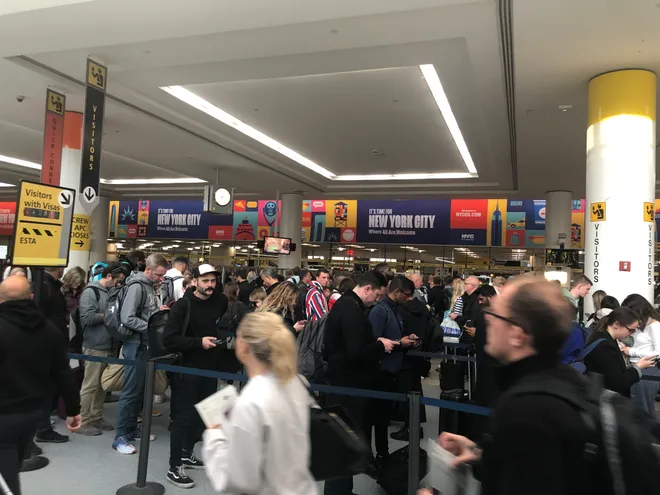
This part of international travel can trip up some | Cruising Altitude
TripFalcon October 31, 2024
Last Update: 2024-10-31 00:01:30I travel pretty regularly for work. But, even as a travel reporter, I don’t always feel like I know what I’m doing.
One thing I always get tripped up on is what to say at the border on an international work trip. Inarguably, these trips are officially “work,” but I’m usually in a country to report on what it’s like to vacation there. Plus, I’m not getting paid by a company in the land I’m visiting. So, am I a tourist or a worker?
Prior to a recent trip to Canada, I was filling out an immigration form that helpfully specified that work could be “paid or unpaid” and it would still count as the explanation for the trip. But not every country is so clear.
Here’s what I learned about what travelers should say at the the customs desk.
What counts as a work trip for immigration purposes?
Everything.
Whether you’re getting paid in the country you’re visiting or not, if you’re doing work, it’s a work trip.
You should always be upfront about the purpose of your trip on any immigration paperwork and at the border checkpoint.
“You have to be honest. The most important thing is to be honest. The border patrol, they already know pretty much everything. When the person gets their visa, everything is registered in the embassy, the reason they’re traveling,” Antoinette-Hannan Leon, vice president at itseasy.com, a passport and visa aid agency, told me. “It’s never a good idea to lie in any foreign country.”
If you’re planning to do any work on a trip at all, you’ll likely need a work visa.
Some countries also have special remote work visas that allow you to visit and work simultaneously. Italy was the latest country to introduce such an option. Many places created or expanded eligibility for the category during the COVID-19 pandemic.
What kind of visa do I need?
It depends on the country you’re visiting and the exact purpose of your trip, but if you’re doing any kind of work while you’re abroad, you’ll need a work permit or visa.
“If a person had a sponsor in the foreign country that they’re traveling to, regarding business meetings, corporate meetings, let’s say they’re going overseas for property to open up a branch for a company, they go to meet with the investors or the engineers that are building the property. That would be a business visa,” Leon said. “A conference visa is if you’re invited to speak at a conference, and there’s also a non-business visa.”

